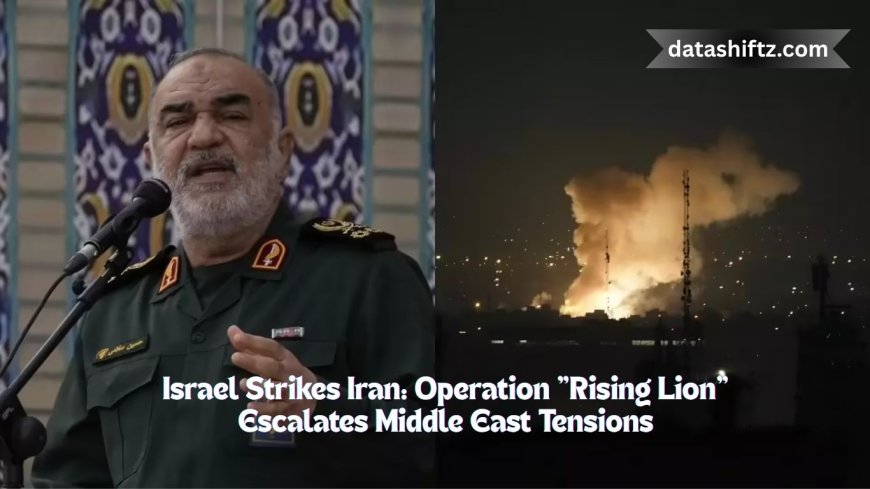Israel Strikes Iran: Operation "Rising Lion" Escalates Middle East Tensions

In a significant escalation of regional tensions, Israel launched a series of airstrikes against Iran on June 13, 2025, targeting key nuclear facilities and military installations. The operation, named "Rising Lion," marks a dramatic shift in the Middle Eastern geopolitical landscape.
Developments in the Israel-Iran Conflict
1. Preemptive Strikes on Iranian Nuclear Sites
Early on June 13, Israeli forces initiated Operation "Rising Lion," executing precision airstrikes on Iran's nuclear infrastructure. Targets included the Natanz nuclear facility and other enrichment sites, aiming to disrupt Iran's uranium enrichment activities, which had reached 60% purity, nearing weapons-grade levels. The International Atomic Energy Agency (IAEA) had recently reported Iran's non-compliance with nuclear obligations, intensifying international concerns.
2. High-Profile Casualties
The strikes resulted in the deaths of several prominent Iranian figures:
-
Maj. Gen. Hossein Salami – Commander of the Islamic Revolutionary Guard Corps (IRGC)
-
Mohammad Bagheri – Chief of Staff of the Iranian Armed Forces
-
Gholam Ali Rashid – Senior IRGC commander
-
Ali Shamkhani – Adviser to Supreme Leader Ayatollah Ali Khamenei (critically injured)
-
Fereydoun Abbasi-Davani and Mohammad Mehdi Tehranchi – Nuclear scientists
These high-profile casualties underscore the operation's intent to cripple Iran's military and nuclear capabilities.
3. Civilian Impact and International Reactions
Iranian state media reported civilian casualties in Tehran, highlighting the operation's widespread impact. International reactions have been varied:
-
United States: While not directly involved, the U.S. expressed concern over the escalation. President Donald Trump emphasized the importance of protecting American forces in the region.
-
China: Issued a travel advisory for its citizens in Iran, urging caution.
-
Iraq: Temporarily closed its airspace as a precautionary measure.
-
New York City: Increased security around Jewish and Israeli sites in response to potential threats.
Strategic Objectives of Operation "Rising Lion"
The primary goals of Israel's operation include:
-
Neutralizing Iran's Nuclear Program: Halting uranium enrichment and dismantling advanced centrifuges.
-
Disrupting Ballistic Missile Capabilities: Targeting missile production and storage facilities.
-
Decapitating Military Leadership: Eliminating key commanders to destabilize Iran's military hierarchy.
Israeli officials have indicated that the operation will continue "for as many days as it takes" to achieve these objectives.
Potential Consequences and Global Implications
The escalation carries significant risks:
-
Regional Instability: Neighboring countries may be drawn into the conflict, leading to broader regional instability.
-
Global Oil Markets: Disruptions in the Strait of Hormuz could impact global oil supplies, affecting international markets.
-
Diplomatic Fallout: The unilateral nature of the Israeli strikes may strain relations with other nations and complicate future diplomatic efforts.
Timeline of Key Events
| Date | Event |
|---|---|
| June 12, 2025 | IAEA reports Iran's non-compliance with nuclear obligations. |
| June 13, 2025 | Israel launches Operation "Rising Lion" targeting Iranian facilities. |
| June 13, 2025 | High-profile Iranian casualties reported. |
| June 13, 2025 | International reactions and security measures intensify. |
Conclusion
Israel's preemptive strikes on Iran signify a pivotal moment in Middle Eastern geopolitics. The operation's immediate impact has been profound, but the long-term consequences remain uncertain. As the situation develops, the international community watches closely, hoping for a resolution that prevents further escalation and promotes regional stability.





























